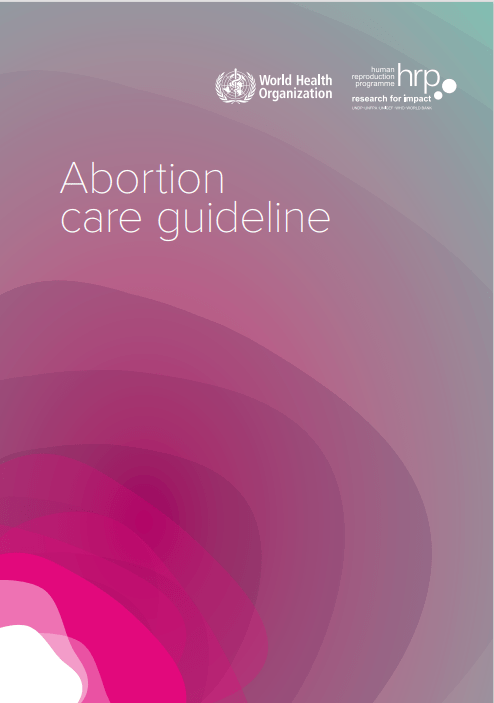Sexual and reproductive health is fundamental to individuals, couples and families, and to the social and economic development of communities and nations. As provided in the Constitution of the World Health Organization (WHO), the organization’s objective is “the attainment by all peoples of the highest possible level of health”, and to fulfil that objective, WHO’s functions include providing technical assistance to countries in the field of health. Universal access to sexual and reproductive health (SRH) information and services is central to both individual and community health, as well as the realization of human rights. In the wake of the COVID-19 pandemic and based on lessons learnt from previous disease outbreaks – when SRH services have been severely disrupted, causing individuals to feel disempowered and be exposed to preventable health risks – WHO has included comprehensive abortion care in the list of essential health services in certain recent technical publications. Comprehensive abortion care includes the provision of information, abortion management (including induced abortion, and care related to pregnancy loss/spontaneous abortion and post-abortion care. Strengthening access to comprehensive abortion care within the health system is fundamental to meeting the Sustainable Development Goals (SDGs) relating to good health and well-being (SDG3) and gender equality (SDG5). WHO’s Global Reproductive Health Strategy, which seeks to accelerate progress towards achievement of international development goals, identifies elimination of unsafe abortion as a priority mandate. The importance of quality abortion care to health is similarly underscored by the United Nations Global Strategy for Women’s, Children’s and Adolescents’ Health, which includes evidence-based interventions for abortion and post-abortion care as one effective way to help individuals thrive and communities transform.
Quality of abortion care is foundational to this abortion care guideline. Quality of care (see Glossary) encompasses multiple components. It is defined as care that is: effective, efficient, accessible, acceptable/patient centred, equitable and safe. Effective care includes the delivery of evidence-based care that improves the health of individuals and communities and is responsive to their needs. Efficient care optimizes resource use and minimizes waste. Quality abortion care must also be both accessible (timely, affordable, geographically reachable, and provided in a setting where skills and resources are appropriate to medical need) and acceptable (incorporating the preferences and values of individual service users and the cultures of their communities). It is imperative that access to abortion care is equitable, and that the quality of care does not vary based on the personal characteristics of the person seeking care, such as their gender, race, religion, ethnicity, socioeconomic status, education if they are living with a disability, or based on their geographic location within a country. And finally, quality abortion care implies that it is safely delivered and minimizes any risks and harms to service users.
Abortion is lawful in almost all countries, although there is variation in the specific circumstances under which an individual may access abortion. In addition, almost all countries where abortion is lawfully available regulate abortion differently to other forms of health care. Unlike other health services, abortion is commonly regulated to varying degrees through criminal law in addition to regulation under the healthcare law. This has an impact on the rights of pregnant individuals and can have a chilling effect (e.g. suppression of actions due to fear of reprisals or penalties) on the provision of quality care. This is why clear, accessible and rights-based law and policy is part of ensuring an enabling environment.

